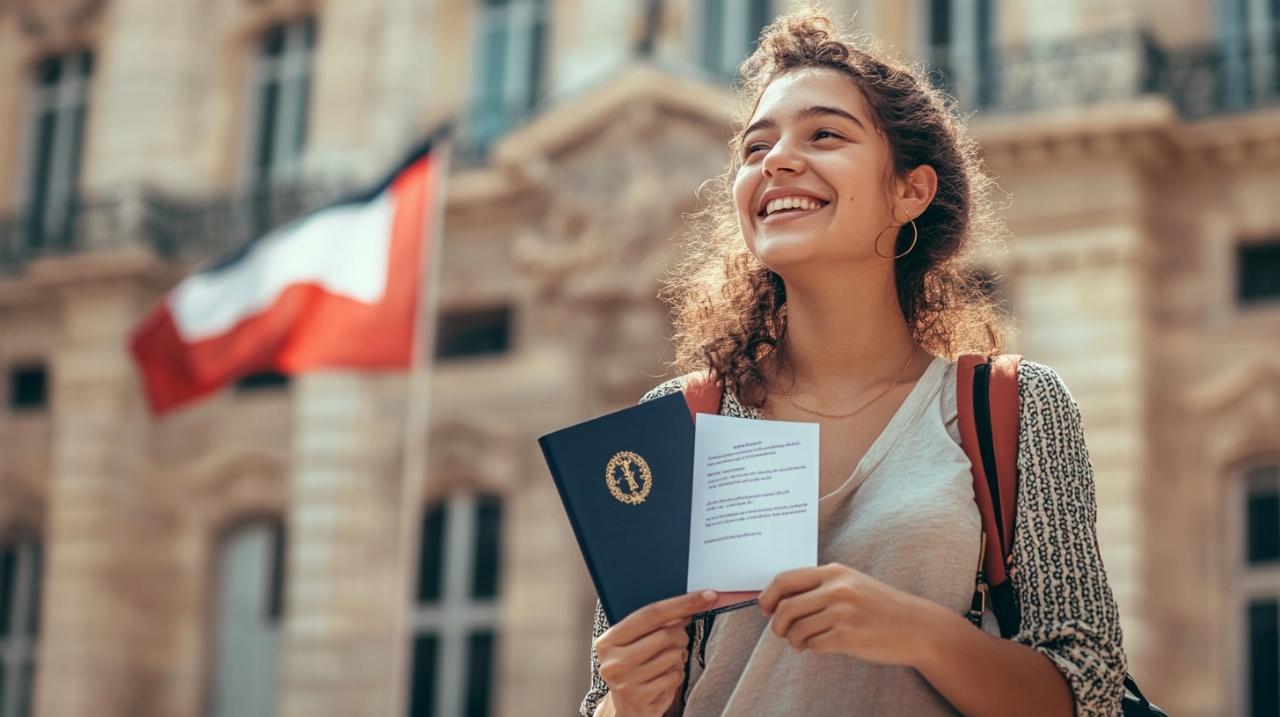Embarking on a study journey to France is an exciting prospect, but navigating the visa application process can be daunting. With the right preparation and knowledge, you can avoid common pitfalls and ensure your French academic adventure begins smoothly. This comprehensive guide will walk you through the essential steps and requirements for securing your French student visa successfully.
Getting your documents in order
Preparing for your French student visa application requires meticulous attention to detail. Jacksons Travels experts emphasise that organisation is key to a successful application. The French authorities have specific requirements, and missing even one document could lead to delays or rejection.
The mandatory paperwork checklist
Your application package must include several crucial documents. First and foremost, you'll need a valid passport with at least three months validity beyond your intended stay. Your acceptance letter from a French educational institution is equally important, serving as proof of your academic intentions in France. Additional requirements include a completed visa application form, passport-sized photographs, proof of accommodation arrangements, and comprehensive medical insurance coverage.
Timing your application right
Starting your application process early cannot be overstated. The French visa system recommends applying 3-4 months before your program begins. This timeline accounts for potential processing delays, especially during peak application seasons between April and August. Remember that you cannot apply more than three months prior to your departure date, creating a specific window for submission. Campus France registration, a mandatory step for many non-EU students, adds another layer to the process and requires additional time.
Financial requirements and proof
French immigration authorities need assurance that you can support yourself financially throughout your studies without becoming a burden on the French welfare system. This aspect of your application deserves special attention as it's often scrutinised closely.
Demonstrating sufficient funds
You must prove financial resources of at least €615 per month for the duration of your stay, though this amount may vary based on your specific circumstances. Acceptable proof includes recent bank statements showing consistent funds, scholarship award letters, sponsorship documentation, or a combination of these. The statements should be in your name and demonstrate stable finances over several months, not just a recent large deposit which might raise questions about the source of funds.
Setting up a french bank account
While not mandatory for the visa application, establishing a French bank account soon after arrival simplifies many aspects of student life in France. Some universities and housing providers require French bank details for payments. Additionally, having a local account facilitates day-to-day transactions and helps avoid foreign exchange fees. Many French banks offer student-friendly accounts with minimal fees and mobile banking options, making financial management more straightforward during your studies.
Healthcare and insurance essentials
Healthcare considerations are crucial when preparing for your French study experience. France has specific requirements regarding medical coverage for international students, and understanding these requirements is essential for both your visa application and your wellbeing while abroad.
Required medical coverage
Your visa application must include proof of health insurance covering at least €30,000 in medical expenses, including repatriation costs. This coverage must be valid for your entire stay in France. Once in France, international students studying for more than three months become eligible for the French social security system after completing the mandatory visa validation process. However, this basic coverage may not be comprehensive enough for all your needs, particularly during the initial period after arrival.
Additional insurance considerations
Beyond the mandatory health insurance, consider supplementary coverage for specific needs. Civil liability insurance (responsabilité civile) is often required by French universities and protects you if you accidentally cause damage to others or their property. Housing insurance is another necessity, frequently required by landlords and student residences. Some international students also opt for additional repatriation insurance or coverage for valuable belongings, providing extra peace of mind during their academic journey.
Nailing the visa interview
 The visa interview represents a critical juncture in your application process. This face-to-face meeting allows consular officers to assess your application beyond the paperwork and determine your genuine intentions to study in France.
The visa interview represents a critical juncture in your application process. This face-to-face meeting allows consular officers to assess your application beyond the paperwork and determine your genuine intentions to study in France.
Preparing for common questions
Expect questions about your chosen study program and how it aligns with your academic history and career aspirations. Consular officers may inquire about your knowledge of France, the French education system, and your selected institution. They might also ask about your language proficiency, especially if your program is taught in French. Prepare thoughtful, honest responses that demonstrate your commitment to academic success in France. Having a clear understanding of your course content, duration, and potential career outcomes will strengthen your case significantly.
Demonstrating your return intentions
One of the primary concerns for visa officers is whether you plan to return to your home country after completing your studies. Strong ties to your home country can help address these concerns. These ties might include family obligations, property ownership, career prospects upon return, or cultural connections. Avoid vague answers about your post-study plans. Instead, articulate how your French education enhances your opportunities in your home country and fits into your broader life and career strategy.
Translation and document authentication
Navigating the language requirements for your visa application requires attention to detail. The French administration has specific standards for document translations that must be strictly followed to avoid delays or rejection.
Finding certified translation services
Any documents not originally in French or English must be professionally translated. These translations must be completed by certified translators recognised by French authorities. When searching for translation services, look for translators who specifically mention certification for French official purposes. University international offices often maintain lists of recommended translation services familiar with academic document requirements. While quality translation services represent an additional expense, cutting corners here can jeopardise your entire application.
Document legalisation requirements
Beyond translation, some documents may require legalisation or authentication to verify their authenticity. The specific requirements vary based on your country of origin and the type of document. Common documents requiring authentication include birth certificates, diplomas, and criminal record checks. The authentication process might involve obtaining an Apostille stamp for countries party to the Hague Convention, or consular legalisation for non-Hague countries. Check with the French consulate serving your area for the exact requirements applicable to your situation.
Regional variations in application processes
The French visa application system is not entirely uniform, and understanding the specific requirements of your local French diplomatic mission can save you considerable time and frustration.
Embassy vs consulate applications
Depending on your location, you may need to apply through the main French embassy or a regional consulate. Each might have slightly different documentary requirements or processing procedures. Some locations have outsourced visa processing to external service providers like VFS Global, adding another layer to the process. Check the official website of the specific diplomatic mission handling your application region to confirm the current procedures and avoid outdated information from third-party sources.
Local requirements you might miss
Beyond the standard requirements, local French diplomatic missions may have additional documentation needs based on regional considerations. These might include specific formats for financial documentation, particular health certificate requirements, or additional identification documents. Some consulates require all applicants to book appointments through online systems with limited availability, while others accept walk-ins during designated hours. Pay attention to any country-specific guidelines mentioned on the official France-Visas website or your local French consulate's pages to ensure your application meets all local criteria.





